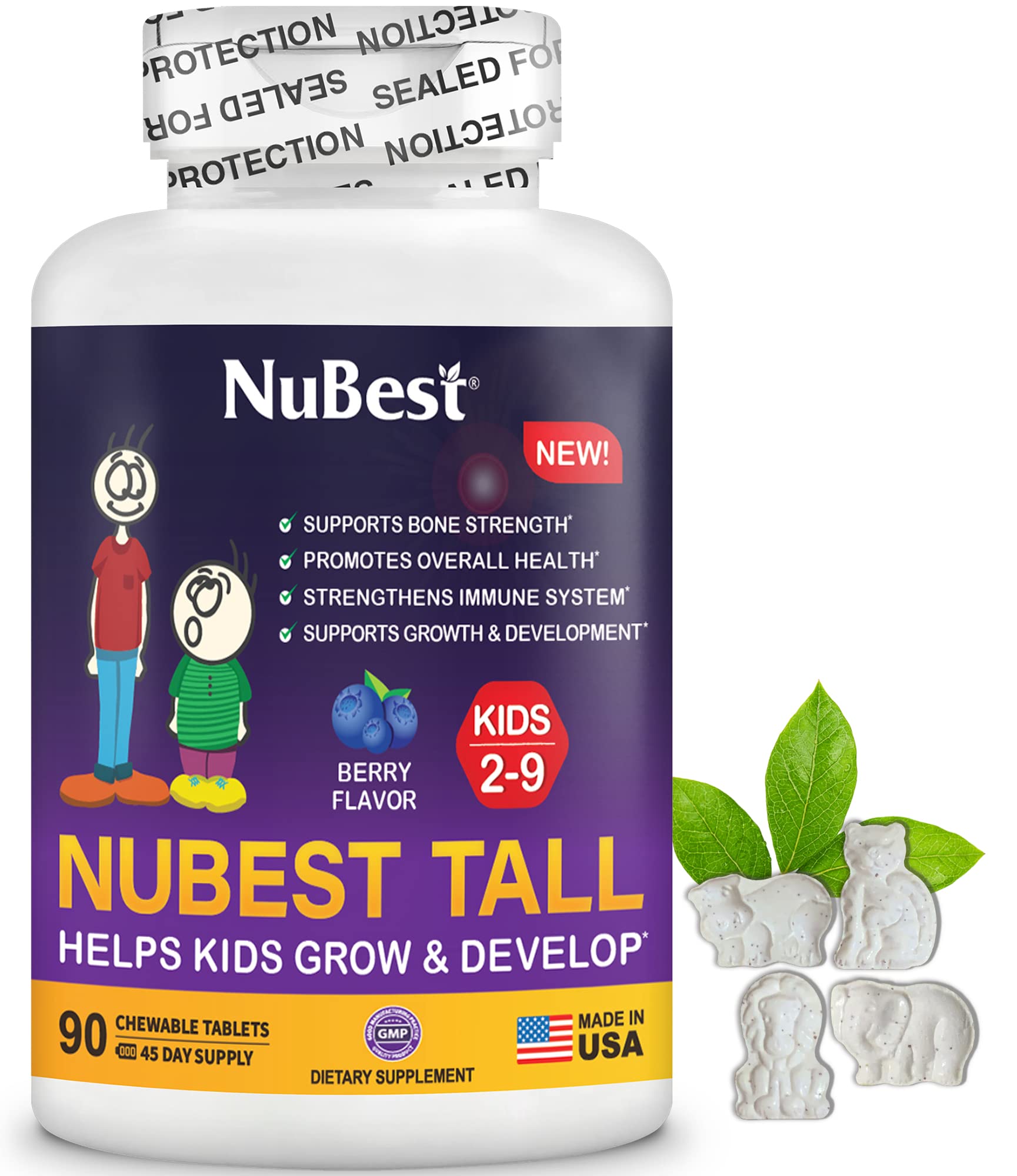9 Best Vitamins for Teens: Boost Growth, Vision, and Immune Health Naturally
Navigating the teenage years can be a whirlwind of growth and change, making it crucial to ensure your teen gets the right nutrients. Vitamins play a pivotal role in supporting their rapid development, energy levels, and overall health. But with so many options out there, how do you know which ones are essential?
In this article, we’ll dive into the nine best vitamins for teens, helping you make informed choices to support their well-being. From boosting immune function to enhancing cognitive performance, these vitamins can make a significant difference in your teen’s life. Let’s explore which vitamins should be on your radar to keep your teen healthy and thriving.
Vitamin A: Essential for Growth and Vision
Vitamin A is crucial for teens, supporting their growth and vision. Ensuring an adequate intake can significantly impact overall health.
The Role of Vitamin A in Immune Function and Vision
Vitamin A plays a vital role in maintaining a strong immune system. It helps your body fight infections by promoting the production of white blood cells. These cells are critical in detecting and eliminating pathogens. Additionally, Vitamin A is essential for good vision. It enables your eyes to adapt to low-light conditions and helps prevent night blindness.
Best Food Sources of Vitamin A
To ensure your teen gets enough Vitamin A, include various food sources in their diet. Carrots are an excellent source due to their high beta-carotene content. Sweet potatoes also provide a substantial amount of Vitamin A. Additionally, spinach offers a good dose of this essential nutrient. Animal sources, like liver and dairy products, are rich in preformed Vitamin A. Regularly incorporating these foods can help maintain optimal levels.
Vitamin B Complex: Boosting Energy and Brain Function
B vitamins play crucial roles in energy production and brain function. They are vital for teenagers, who experience rapid growth and need sustained energy levels.
Key Benefits of B Vitamins for Teenagers
Energy Production
B vitamins, especially B1 (thiamine), B2 (riboflavin), and B3 (niacin), help convert the food you eat into energy. This is essential for teens who need a constant energy supply for their active lifestyles.
Brain Function
Vitamin B6 (pyridoxine) and B12 (cobalamin) are crucial for brain health. They support neurotransmitter function, which can enhance mood and cognitive performance. Teens benefit from improved focus and reduced stress levels.
Cell Growth and Repair
Folate (B9) aids in cell growth and repair, which is vital during teenage years of rapid growth. It also supports the synthesis of DNA and RNA, ensuring healthy development.
Red Blood Cell Formation
Vitamin B12 works closely with folate in red blood cell formation. Adequate levels can prevent anemia, a common issue during teenage years, ensuring your teens stay energetic and active.
Foods Rich in Vitamin B Complex
Whole Grains
Whole grains such as wheat, oats, and brown rice are excellent sources of multiple B vitamins. They keep your teens fueled throughout the day.
Meat and Fish
Lean meats, chicken, eggs, and fish like salmon and tuna provide a good amount of B12, B6, and niacin. These help boost overall energy and brain function.
Dairy Products
Milk, cheese, and yogurt offer riboflavin (B2) and B12. Including these in your teen’s diet supports their growth and energy needs.
Leafy Greens and Vegetables
Spinach, kale, broccoli, and asparagus are packed with folate (B9). These vegetables contribute to healthy cell development and energy levels.
Legumes and Nuts
Beans, lentils, almonds, and peanuts are rich in several B vitamins. Adding these to meals can enhance your teen’s nutrient intake, supporting their rapid growth and active lifestyle.
Vitamin C: The Immunity Booster
Vitamin C is essential for teenagers due to its powerful antioxidant properties. It plays a critical role in supporting a healthy immune system and maintaining vibrant skin.
How Vitamin C Supports Immune Health and Skin
Supports immune health by enhancing your body’s defense mechanisms. Vitamin C stimulates the production of white blood cells, which fight off infections and illnesses. Additionally, it helps these cells function more effectively while protecting them from harmful molecules like free radicals.
Promotes healthy skin by aiding in collagen production. Collagen, a protein found in your skin, helps to maintain its firmness and elasticity. Teenagers often experience skin issues like acne, and Vitamin C can help by reducing inflammation and aiding in skin repair.
Natural Sources of Vitamin C
Get your daily dose of Vitamin C from a variety of natural sources. Citrus fruits, such as oranges, lemons, and grapefruits, are well-known for their high Vitamin C content. Additionally, strawberries, bell peppers, and broccoli are excellent sources.
Include these foods in your diet for optimal benefits. Drinking a glass of orange juice, snacking on strawberries, or adding bell peppers to your meals can significantly boost your Vitamin C intake and support your overall health.
Vitamin D: Crucial for Bone Health
Vitamin D is essential for your teenager’s bone health and overall well-being.
The Importance of Vitamin D for Developing Bones
Vitamin D helps your body absorb calcium and phosphorus, which are vital for building and maintaining strong bones. During the teenage years, bones grow rapidly, making adequate vitamin D crucial for preventing conditions like rickets and osteoporosis. It also supports muscle function and immune health, ensuring your teen stays active and healthy as they grow.
Top Vitamin D Sources and Sunlight Exposure
Foods rich in vitamin D include fatty fish like salmon, mackerel, and sardines, as well as fortified foods like milk, orange juice, and cereals. In addition to dietary sources, sunlight exposure is a natural way to boost vitamin D levels. Aim for your teen to get about 10-30 minutes of sunlight several times a week, depending on skin type and geographic location. Remember to balance sun exposure with skin protection to avoid burns and long-term skin damage.
Vitamin E: Protecting Cells
Vitamin E plays a critical role in protecting your cells. This essential nutrient helps maintain healthy skin and eyes.
Antioxidant Properties of Vitamin E
Vitamin E acts as a powerful antioxidant. It protects your cells from damage caused by free radicals. Free radicals can lead to chronic diseases, including heart disease and cancer. Antioxidants from Vitamin E neutralize these harmful molecules, ensuring your cells remain healthy.
Foods High in Vitamin E
You can boost your Vitamin E intake with various foods. Nuts and seeds, like almonds and sunflower seeds, are excellent sources. Vegetable oils, such as sunflower and safflower oil, are also rich in this vitamin. Additionally, green leafy vegetables like spinach and broccoli provide significant amounts of Vitamin E. Incorporate these foods into your diet to support your overall health and protect your cells efficiently.
Vitamin K: Essential for Blood Clotting
Vitamin K plays a critical role in helping your blood clot properly, which is essential for preventing excessive bleeding.
The Role of Vitamin K in Bone Strength and Healing
Vitamin K is key for bone health. It aids in the regulation of calcium in your bones and bloodstream, ensuring your bones stay strong and healthy. Studies have shown that teens who get enough Vitamin K are less likely to experience bone fractures. It also helps with bone healing, making it particularly important during growth spurts.
Leading Dietary Sources of Vitamin K
You can find Vitamin K in many foods. Leafy greens like spinach, kale, and broccoli are some of the best sources. Other vegetables such as Brussels sprouts and cabbage also provide a good amount of this essential vitamin. Including these in your diet ensures you get the Vitamin K needed for proper blood clotting and bone health.
Folic Acid (Vitamin B9): Important for Cell Growth
Benefits of Folic Acid in Teen Development
Folic acid plays a crucial role in the growth and development of your teen. It helps produce and maintain new cells, essential during rapid growth periods. This vitamin is particularly vital for proper brain function and emotional health. Folic acid also supports the synthesis of DNA and RNA, your cells’ building blocks. Ensuring an adequate intake can help prevent specific birth defects if your teen is female and of childbearing age.
Finding Folic Acid in Everyday Diet
You can find folic acid in various foods. Leafy greens like spinach, kale, and romaine lettuce are excellent sources. Fortified cereals and bread also offer substantial amounts of this vitamin. Include citrus fruits like oranges, lemons, and grapefruits in your teen’s diet for an extra boost. Beans, peas, and nuts are also packed with folic acid. Consuming a balanced diet with these foods ensures your teen gets the essential folic acid they need for healthy development.
Iron: Supporting Overall Development
Iron is crucial for teens’ growth and overall development. It plays a vital role in energy production, cognitive function, and immune health, which are particularly important during adolescence.
How Iron Works with Vitamins for Optimal Health
Iron works in tandem with several vitamins for optimal health. Iron and Vitamin C, for example, make a powerful duo. Vitamin C enhances iron absorption, ensuring your body gets the most out of this essential mineral. Additionally, iron is vital for hemoglobin production, which carries oxygen to your cells. Without enough iron, your body can’t efficiently utilize other vitamins, leading to potential deficiencies and reduced energy levels.
High-Iron Foods That Help Absorb Other Vitamins
Incorporating high-iron foods into your diet can significantly improve your overall nutrient absorption. Red meat, chicken, and fish are excellent sources of heme iron, which is more easily absorbed by the body. For those on plant-based diets, spinach, lentils, and fortified cereals provide non-heme iron. Pairing these foods with Vitamin C-rich items like citrus fruits, tomatoes, and bell peppers can boost iron absorption. This combination ensures you’re maximizing the benefits of both iron and other vital vitamins, supporting your body’s development and overall health.
Calcium: Vital for Bone Development
Calcium is crucial for teens to develop strong bones and teeth, supporting their rapid growth phase. Ensuring adequate calcium intake during these years lays a solid foundation for lifelong skeletal health.
Interactions Between Calcium and Vitamin D
Calcium works best when paired with Vitamin D. Vitamin D helps your body absorb calcium effectively, ensuring it reaches your bones. Without sufficient Vitamin D, even high calcium intake won’t benefit bones. You can get Vitamin D from sunlight, fortified dairy products, and fish. Combining these with calcium-rich foods optimizes bone development.
Calcium-Rich Foods for Teens
Incorporate calcium-rich foods into your teen’s diet to ensure they get enough of this vital mineral. Dairy products like milk, cheese, and yogurt are excellent sources. Non-dairy options include leafy greens like kale and spinach, almonds, and fortified plant-based milks. By diversifying calcium sources, you can meet dietary needs and support bone health effectively.
Conclusion: Integrating These Vitamins into a Teen’s Diet
Ensuring teens get the right vitamins is vital for their growth and overall well-being. By incorporating a variety of nutrient-rich foods like dairy products, leafy greens, citrus fruits, and fortified plant-based milks, you can support their health and development.
Remember that a balanced diet, rich in essential vitamins and minerals, lays the foundation for a healthy future. Consider consulting with a healthcare provider to tailor a diet plan that meets your teen’s specific needs.
With the right approach, you can help your teen thrive during these crucial years.






